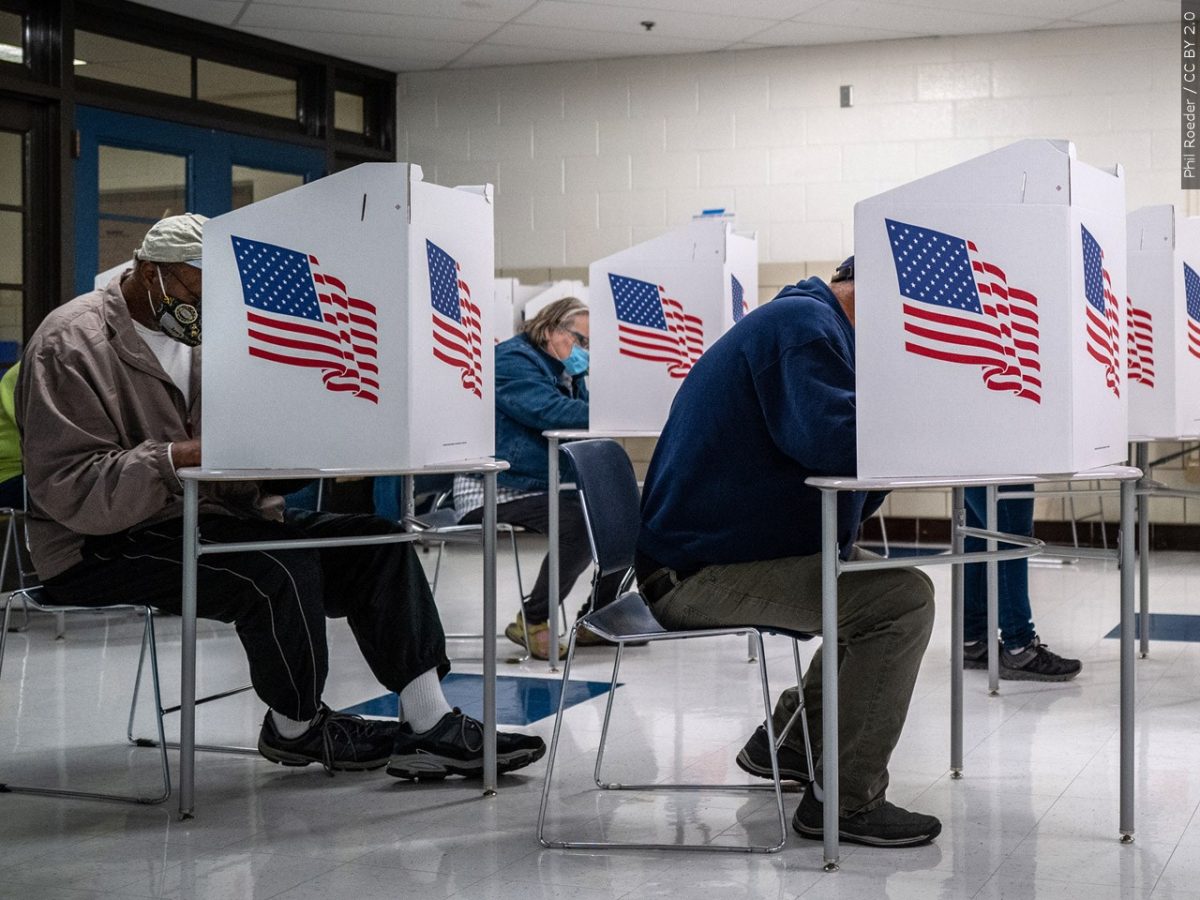Voting is an American right given to the people that allows them to choose who represents the people in the United States government. In recent elections, there have been up-in-the-air questions from all parties related to how votes are counted, and if all are counted or not.
Currently, nine Georgia counties are being investigated for accusations related to voter fraud. The Georgia Secretary of State’s office reported 17 cases related to Georgia citizens who were suspected of voting twice.
These individuals were accused of casting a vote in both Georgia and another state during the 2022 general election. District attorneys will evaluate the cases and decide whether an indictment is necessary or not.
Georgia’s membership in the Electronic Registration Information Center, also known as ERIC, helped to uncover the alleged voter fraud. This network includes 24 states and the District of Columbia. The purpose of the network is to share interstate data to improve the quality of election administration by promoting accurate votes and identifying illegal activity.
Voter fraud is not new to Georgia. It is an issue that repeats its appearance throughout the state legislature.
“Voter fraud is a significant issue in Georgia that has implications on the integrity of our democratic process and the effectiveness of our electoral system,” said Lindsey Wirtanen, a junior history major. “It undermines the fairness and legitimacy of our elections, leading to voter disenfranchisement and eroding trust in the democratic process.”
Georgia faced challenges with voter fraud during the 2020 presidential election, which led to the passing of the Georgia Election Integrity Act of 2021.
Katie Cooper, a sophomore political science major speaks, on the legality of the law’s power over the people.
“I think that, although voter fraud certainly is a concern, the Election Integrity Act of 2021 restricts voter accessibility more than it contributes to integrity,” Cooper said. “Enforcing substantially fewer drop boxes and shortening the amount of time to request an absentee ballot ensures that Georgia voters will only be easily able to do their civic duty if they have a substantial understanding of the new law, the ability to travel to the correct in-person voting location and vote within more limited hours.”
The controversy looms about whether the law is doing its job to lessen voter fraud by taking the power away from the public. This sentiment is something derived from Democrats during the creation of the act. Many were stating it was going to push Georgia back into the Jim Crow era, stating that it would end voting hours early.
In April 2022, Georgia passed the Criminal Responsibility Act, which gives the Georgia Bureau of Investigation, or GBI, the right to investigate allegations of voter fraud, initiate inquiries and subpoena people independently. This specifically allows the GBI to subpoena any individual and documents or items from electronic devices.
The bill states a failure to obey a subpoena may be punishable by contempt of court. Any person who is found guilty of voter fraud may be fined up to $100,000 or imprisoned for at least one year but no more than 10 years.
Voter fraud accusations are leading to more distrust between people and the government. An anonymous student from Forsyth County — a county included in the list of investigated counties — gives her opinion on the voter fraud accusations and why voting power is important.
“If the power of voting is given to the people, we should be able to trust the government,” the student said. “Voter fraud has only increased my distrust of the government as a whole. If I cannot trust my county government, why can I trust the state and federal governments? I think it is important for people to vote because their voices and opinions matter. In simple terms, not voting is a form of voting because you allow others to take your power.”
As the case continues to develop, the Secretary of State’s office and the District Attorney’s office will continue to investigate until a solution is found.


